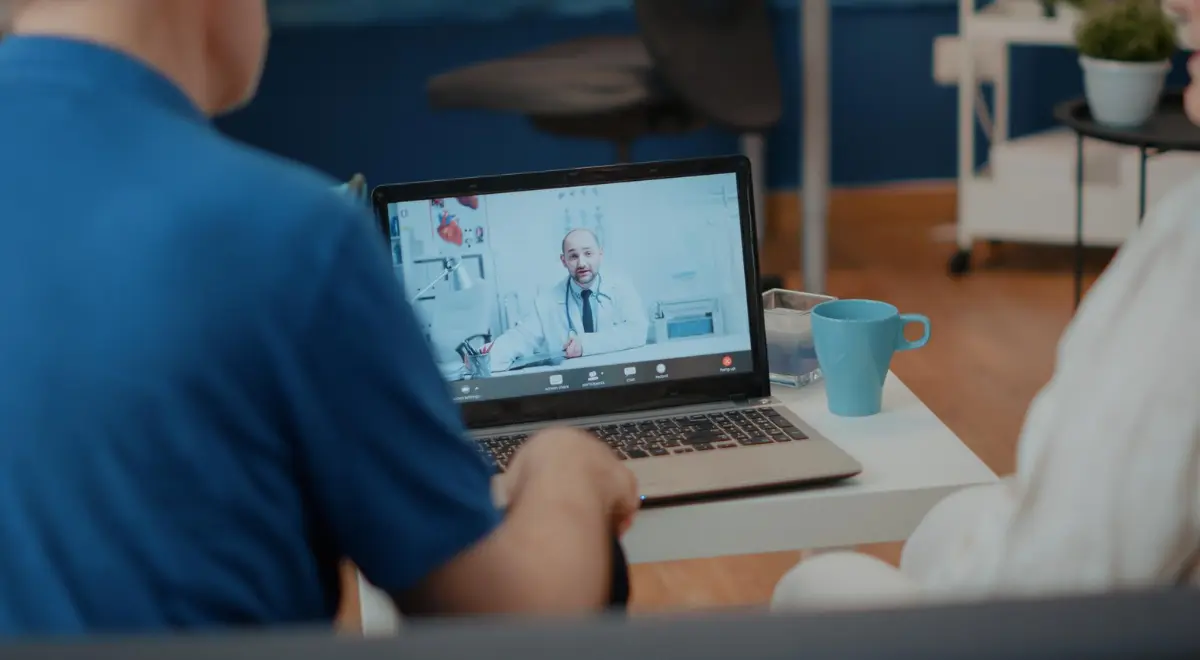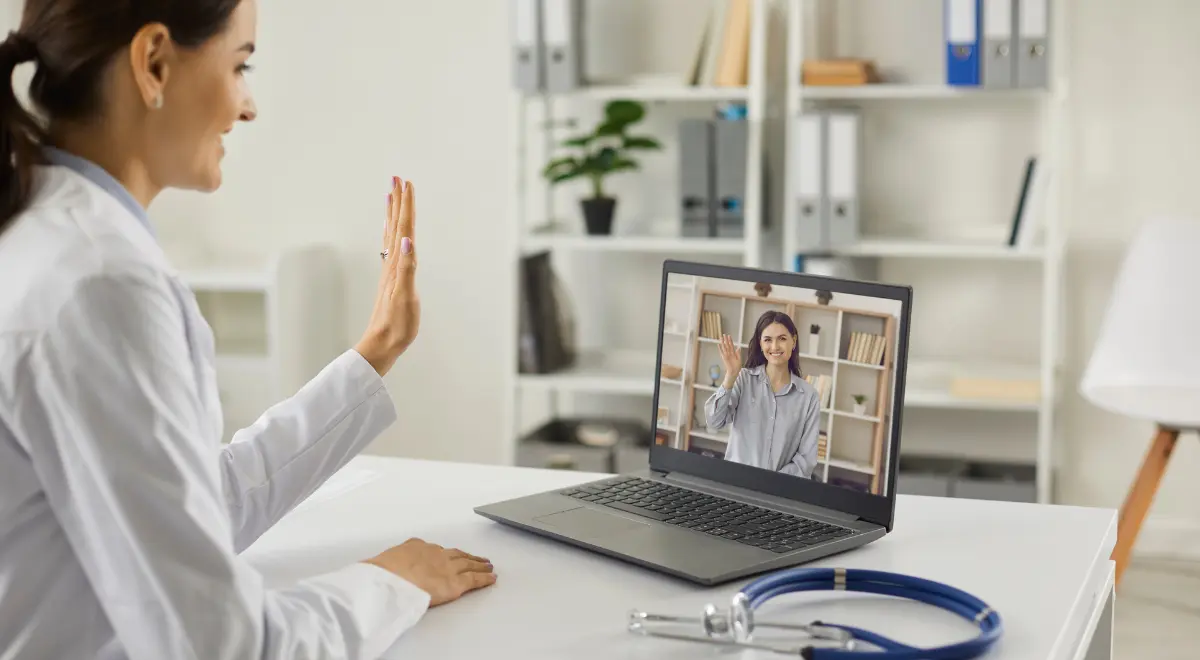Top 4 Use Cases For Chronic Care Management (CCM)

Chronic Care Management (CCM) is a medical term used for chronic care services offered to patients having more than one chronic disease. CCM consists of care coordination performed in a remote or out-of-the-clinic setting for patients experiencing at least two chronic health conditions expected to last for more than a year or until the patient’s death.
Physicians, nurse practitioners, physician assistants, FQHCs, RHCs, and certified nurse midwives are all eligible to bill CCM for non-face-to-face care coordination services administered for at least 20 minutes per month.
Chronic conditions eligible for CCM service include:
- Alzheimer’s
- Arthritis
- Asthma
- Atrioventricular Fibrillation
- Dementia
- Disorders on Autism Spectrum
- Cancer
- Cardiovascular Illness
- Obstructive Pulmonary Disease
- Depression
- Diabetes
- Hypertension
- HIV/AIDS
- Substance Abuse Problems
There are approximately 117 million adults in the US who are dealing with at least one of the above listed chronic health conditions and one in four adults has two or more chronic conditions that require long-term care.
- Chronic Care Management Use Case: Obesity
Obesity may qualify as a chronic condition if it meets the two of the CCM criteria, i.e. expected to last for at least a year, or until the patient’s death. Also, if it puts a patient at a significant risk of acute exacerbation, functional decline, and death.
Chronic care management for obesity plays a significant role in providing continuous support, personalized care strategies, and near real-time monitoring of a patient’s weight loss progress. A well-implemented CCM program is beneficial in putting the patients on the path to long-term weight loss success.
Chronic care management with remote patient monitoring allows for near real-time monitoring of weight scale that enables healthcare providers to track patients’ progress towards their weight loss objectives, keeping the weight in control.
- Chronic Care Management Use Case: Diabetes
Diabetes is a common healthcare concern with an estimated 29 million adults, i.e. 11% of the population in the US living with the disease. If not managed on time, it can cause a wide range of medical issues, resulting in significant medical expenses and stress.
CCM provides both patients and healthcare providers with thorough glucose monitoring and empowers them to follow a proactive diabetic care approach to prevent glucose spikes. By understanding how various factors influence glucose levels, care providers can formulate proactive care plans, modify medications, or intervene to improve long-term diabetes management.
Providers allow patients to utilize RPM glucometers to track their glucose levels at home, thereby promoting diabetes data recording. Once done, the care providers intervene promptly in case of glucose reading fluctuations and provide timely care to keep it in control.
- Chronic Care Management Use Case: Congestive Heart Failure (CHF)
Congestive Heart Failure condition is on a significant rise in people over 65 in the US and is often the leading cause of hospital admission and readmission. Chronic care management is proven to reduce re-hospitalization in this chronic condition, thereby lowering the mortality rate too. Care providers can educate patients about the causes and symptoms of CHF, along with recommending a result-oriented treatment plan.
Along with providing access to quality care from the comfort of their homes, care providers can constantly monitor abnormal heart readings, and provide much needed intervention at the earliest, and make informed decisions about the ongoing heart care plan.
CCM when implemented in conjunction with remote patient monitoring does a lot more than just minimizing readmissions. It allows the patients to follow treatment procedures without disrupting their everyday routines, minimizing complications, improving patient well-being, and avoiding costly readmission fines.
- Chronic Care Management Use Case: Hypertension
Hypertension, or high blood pressure, affects roughly 50% of the population in the US and is a chronic condition that is often ignored or taken for granted. If not addressed on time, hypertension can progress to more significant health problems such as kidney damage, stroke, and heart failure.
Chronic care management is extremely helpful in dealing with hypertension and allows care providers to monitor blood pressure readings in real-time. By proactively tailoring the care plans, CCM enhances patient engagement and contributes to improving health outcomes.
RPM with CCM plays an efficient role in developing a consistent measurement procedure, understanding the patient’s condition, developing new behaviors, and regularly recording their data.
Boost Chronic Care Management Outcomes With HealthArc’s CCM Platform
HealthArc is the pioneer in digital healthcare technology and assisting care providers in incorporating the best CCM software and practices in their out-of-clinic settings. Our virtual care programs are designed to improve patient outcomes, boost care coordination, and enhance patient engagement. Our easy-to-use and integrated online platform allows healthcare providers to successfully track and bill for CCM services.
Schedule a demo to learn how our platform works or call us today at +201 885 5571 to set up a consultation with our experts.
Most recent blogs
Categories
- Advanced Primary Care Management
- Behavioral Health Integration
- Cellular Remote Patient Monitoring
- Chronic Care Management
- Chronic Care Management Billing
- Chronic Care Management CPT Codes
- Chronic Care Management Program
- Chronic Care Management Software
- Digital Health Platform
- Principal Care Management
- Principal Care Management CPT Codes
- Remote Care Programs
- Remote Monitoring Devices
- Remote Patient Care
- Remote Patient Monitoring
- Remote Patient Monitoring Billing
- Remote Patient Monitoring CPT Codes
- Remote Patient Monitoring Devices
- Remote Patient Software
- Remote Therapeutic Monitoring
- Remote Therapeutic Monitoring Billing
- Remote Therapeutic Monitoring CPT Codes
- Telemedicine & RPM
- Transitional Care Management
- Transitional Care Management Billing
- Transitional Care Management CPT Codes
Related Posts
- December 5, 2024 | Read Time: 7 mins
How Remote Patient Monitoring Improves Chronic Care Management?
- July 23, 2024 | Read Time: 8 mins
HealthArc Vs. Prevounce: Which One To Choose?
- July 9, 2024 | Read Time: 3 mins






